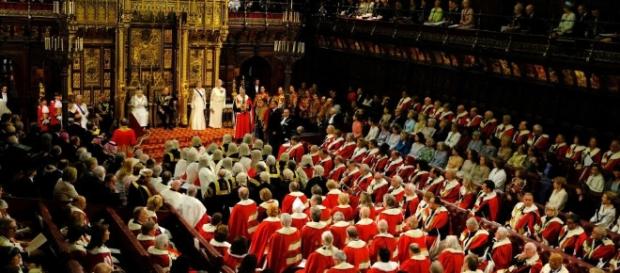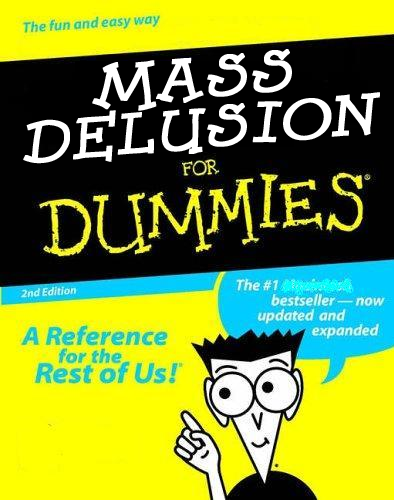The McKay Commission on the West Lothian Question has reported today with the conclusion that not addressing the West Lothian Question is unsustainable and that nothing should be changed to address the West Lothian Question.

British government puts Scot in charge of commission deciding whether Scots should vote on English laws
The report says that English-only legislation should be supported by a majority of British MPs representing constituencies in England and that they should pass a resolution saying that they’re not going to do it again.
And that’s it – no ban on British MPs from constituencies in Scotland, Wales and Northern Ireland from voting on laws that are devolved in their own country, nothing to prevent a repeat of the shameful way Scottish MPs voted through foundation hospitals and university tuition fees for England. The procedures of the British House of Commons “should be changes to encourage MPs to follow this approach” (my emphasis).
The report says that instead of requiring a majority of MPs representing constituencies in England to pass a bill affecting England only, they should just publish the voting record of MPs representing constituencies in England alongside the final result.
If a government was seen to have failed to attract the support of a majority of MPs from England [or England and Wales] for business affecting those interests, it would be likely to sustain severe political damage.
This is pie in the sky stuff from the Scotsman the Brits ironically put in charge of this English commission. It was well publicised at the time and has continued to be well publicised that it was British MPs elected in Scotland who imposed tuition fees on English students yet despite all the campaigns and violent protests about them being introduced (and then tripled) there has been no mention of this fact by the campaigners, protesters or the media. In fact, the executive summary of the report also fails to mention these votes, raising the prospect of it happening but then dismissing it by pointing out that the party with a majority in the British Parliament has only had a minority in England twice which is completely irrelevant.
Specifically it raises the possibility that a majority opinion among MPs from England on such laws could be outvoted by a UK-wide majority of all UK MPs. But it is extremely rare for this to happen. Since 1919, only in the short-lived parliaments of 1964–66 and February–October 1974 has the party or coalition forming the UK Government not also enjoyed a majority in England.
The report recognises that “people in England are unhappy about the existing arrangements and support change” but ignores – by cherry picking the surveys it quotes – the fact that the majority of that support for change is for an English Parliament. It goes on to say that British MPs representing constituencies in Scotland, Wales and Northern Ireland should not be banned from voting on English matters because that “would create two different classes of MP” completely missing the point that there are already two different classes of MP – those who can vote on domestic affairs in their own constituency and those who can’t, those who can vote on laws for another country where the people affected can’t hold them to account and those who can be held to account by every voter their decisions affect.
The commission report says that the democratic deficit in England as a result of the botched devolution deal that left England out is accidental:
In the absence of change in the way the House of Commons works, the consequence – clearly unintended, but nonetheless important – may be to impede the voicing of any distinctively English concerns, or perceived concerns, that exist on wholly or mainly English matters.
I don’t believe for a moment that the way England is treated as a British colony is accidental and the refusal of the British government to release the minutes of the 1997 Cabinet meetings on devolution makes me all the more suspicious. The spurious excuse for withholding the minutes is that it would undermine the principle of collective decision making but last week Margaret Thatcher’s papers from the Falklands war were published which showed that Ken Clarke – a current member of the Cabinet – opposed kicking the Argentinians out of the Falklands and favoured collaboration with them instead. If those papers don’t undermine the principle of collective decision making then what does?
McKay and his researchers make it very clear that they have sought opinions from all parts of the UK on how England should be government:
Any reforms undertaken to respond to English concerns must therefore be mindful of possible impacts outside England and seek to mitigate such impacts.
In 1997, however, nobody in England was asked for an opinion on how Scotland and Wales should be governed. We weren’t even asked for an opinion on how England should be government and we’ve been refused the right to voice our opinion on it ever since.
The report dismisses an English Parliament within a British federation out of hand, claiming that “the great majority of evidence submitted to [them] was, however, set firmly against the idea of an English Parliament”. This “evidence” was:
There are no precedents of federal systems in which one component makes up over five-sixths of the overall population of a state. There is a wide view that such a big unit would destabilise the state as a whole, both in relation to the three much smaller units in Northern Ireland, Scotland and Wales, but also in relation to the federal UK parliament and government, to which an English parliament would be likely to be a powerful rival.
While there is no precedent of a federal system with one constituent part comprising 80% of the population working, there is no precedent of it not working. There is evidence of discrimination or poor treatment of a native population bringing down entire empires though so the commission is shown to be very selective in what “evidence” it considers.
The argument that an English Parliament would somehow dominate a federal British government is a nonsense – in a federal structure the English Parliament would be concerned only with English domestic affairs, the same as the Scottish Parliament, Welsh Assembly and Northern Irish Assembly are now. If a reserved matter was of such specific national interest that the English Parliament and one or more of the other national parliaments were at loggerheads over it then it is clearly something that should be devolved anyway.
Any federal system requires a delineation of competences, which are usually arbitrated by a supreme court that would be able to overrule the UK parliament, as well as binding the devolved institutions. This would be a radical departure from UK constitutional practice. In this and in other respects, the “massive upheaval in governmental arrangements that would be needed to create a new Parliament for 50 million people” would not appear a proportionate response to the current sense of disadvantage in England.
I fail to see the problem with a constitutional court and in fact proposed this as part of my case for a British confederation – a solution that the McKay commission didn’t consider. The British government (and devolved governments) should be bound by the law. Changing the law to legitimise breaking the law is clearly wrong and a constitutional court should be able to bind a government in its judgements. Quis custodiet ipsos custodes? Nobody and that’s why our politicians have been able to lie, cheat and thieve their way through their political careers with relative impunity. A constitutional court is an eminently sensible suggestion.
Whether the creation of an English Parliament is considered by politicians and academics to be “proportionate” or not is irrelevant. It is an integral part of the only two workable solutions to the democratic deficit experienced in England that maintains a British union and is what most polls show that most people in England want.
It seems unlikely in the current climate that citizens would favour having more politicians than now, or the costs associated with establishing a new institution.
The “more politicians, more cost” argument about an English Parliament is so discredited that it really shouldn’t have made it into this report containing “expert” evidence and opinion at all. The vast majority of legislation currently passed by the British government is either English-only legislation now or would be under a federal system of government. There is no need for over 650 British MPs with most of their work being the responsibility of another government. Simply taking the number of British MPs representing constituencies in England and applying that number to a devolved English Parliament and redistributing the difference would result in no net increase in politicians but by being a bit more ambitious, the total number of politicians in the British and English parliaments could easily be decreased.
The cost is also a non-argument. Former Tory MP, Chris Gill, wrote a paper on creating a British federation when he was still an MP. The paper proposed turning the House of Commons into an English Parliament and the House of Lords into a federal British Parliament and found that in today’s money, it would save almost half a billion a year.
The report touches on cross-border effects of English legislation and uses that as a reason not to ban British MPs representing constituencies in Scotland, Wales and Northern Ireland from voting on English laws. It fails to examine the existing example of the Scottish government being given jurisdiction over sections of the River Tweed in England and its English tributaries which means English people accused of unauthorised fishing on an English river can be summoned to appear before a Scottish Sheriff in a Scottish court to be tried under Scottish law.
Cross-border effects of English legislation under the British government are also not fully explored. The requirement of all young English people to remain in education until the age of 18 is a perfect example – the British government has passed this law without considering the cross-border effects resulting in there still being unanswered questions as to how people moving from England before finishing their post-16 education will continue to be educated in Scotland and Wales or if Scottish people will be exempted from post-16 education despite the fact that it comes into force this September.
EU legislation is given a brief mention, pointing out that it is applied differently to England than it is in Scotland, Wales and northern Ireland and that there is no differentiation between English and British interests. The report fails to point out that Scotland, Wales and Northern Ireland have their own representation to the EU.
So, that’s the report in all it’s inglorious mediocrity but what’s wrong with the proposal itself? The proposals put forward by the report won’t actually change change anything in any material way. The standing orders for committees might change but that’s just a framework. Most English people have little interest in how these committees are formed, they’re bothered about the fact that British MPs representing constituencies in Scotland, Wales and Northern Ireland get to vote on English laws and sometimes get to overrule the wishes of the majority of British MPs representing constituencies in England. The McKay commission’s proposals don’t address this at all. It isn’t even the unworkable “English Votes on English Laws” constitutional fudge, it’s a fudge of that fudge and a waste of everyone’s time, money and effort.
There are only three workable solutions to the democratic deficit experienced by England in the British union. The first option and the one that causes the least constitutional upheaval is a federal structure which sees England given a devolved English Parliament with at least the same powers as the Scottish Parliament. The second option is a more ambitious constitutional change, creating a British confederation. The third option is English independence. English Votes on English Laws and any of the variants proposed now or in the past just can’t be made to work. A politician can’t exclusively represent British interests one day and exclusively represent English interests the next. English laws need to be proposed, amended and voted on by politicians elected in England to represent English interests in an English government. English Votes on English Laws would give us British politicians elected in England to represent British interests in the British government making British laws for England. It would be an unworkable mess.
The unwritten brief of the McKay commission was to come up with a way of maintaining the status quo whilst appearing to be addressing the concerns of English people about who gets to make English laws. In this respect, the commission has successfully met its objectives and the British government now has an “independent” report telling them that the answer to the West Lothian Question is to con English people into thinking that they’re doing something about it whilst doing absolutely nothing to address it.








